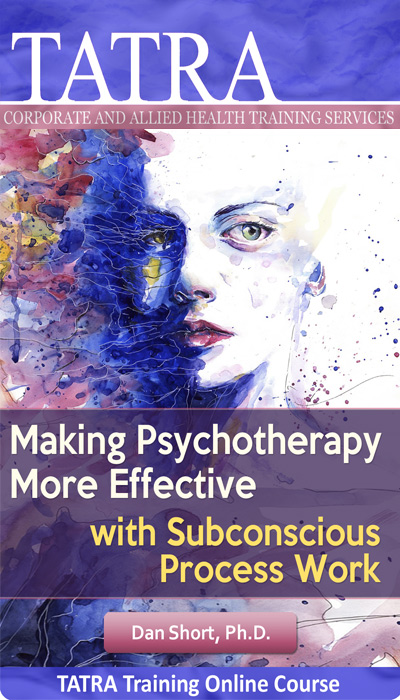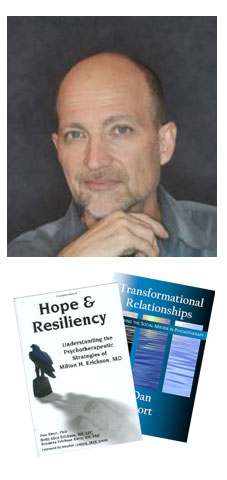24 Mar Making Psychotherapy More Effective with Subconscious Process Work

Become Super Effective in Your Clinical Practice.
Utilise Practical Steps to Make Quick Progress in Counselling.
Prevent Your Clients from Self-sabotaging Goals!
Most of the time, the conscious goals we set up for ourselves are sabotaged by our subconscious processes. Imagine how much faster and more successful you would’ve been as a therapist if you helped your clients succeed in achieving goals by engaging both conscious and subconscious processes of the mind. This skill would benefit your client’s sense of achievement and improve their life almost immediately, no doubt. But if you learned how to engage sub-conscious mind processes, your organisation could benefit too. Your services would lead to achieving good client outcomes really fast!
Although our cognitive processes are important and valuable to therapy and to daily life, it is the vast interplay of activity that occurs beneath the surface of consciousness that is doing the necessary preparatory work. Our subconscious mind is a place used by our self-preservation systems to hide many of those things that can do us harm. Our implicit world can be full of memories, emotional horrors, traumas, and deficits that are too much to deal with in the conscious space. Their effects are felt as emergent states that might include depression, anxiety, addictions, or social dysfunction. But, just like “I’m hungry,” these conscious “awarenesses,” or what we often call symptoms, are blunt expressions of something far more complex, detailed, and nuanced.
Watch this recording and learn how implementing such skills like prediction, or the powerful effects of suggestion, re-imagining, metaphors, incubated cognition, the power of self-promises, or emotional insight will significantly improve your effectiveness as a therapist, and will allow your clients to achieve goals.
This brand new course is based on Dr Dan Short’s newest book “Making Psychotherapy More Effective with Unconscious Process Work” to be published in July 2021. Dr Short is a top-ranked psychologist practitioner who has learned to view every problem as an opportunity. Dr Short has taken the lessons of 15 years of scholarly research and clinical problem solving and condensed them down into the essential mindsets and strategies. During this training opportunity, participants will learn:
- How to access the innate problem-solving capacities of the mind, which include intuition, deliberation, insight, conviction, and optimism. Without these essential mindsets, effective problem solving fails to develop.
- How to meaningfully select techniques based on an understanding of the function they serve. This strategic perspective enables the practitioner to catalyse different mindsets using a variety of concrete strategies.
- How to use statements and suggestions to build the mental framework needed to solve some immediate problem in a way that better prepares the individual for future problem solving.


- Learn how to access the innate problem-solving capacities of the mind.
- Implement therapeutic strategies which include intuition, deliberation, insight, conviction, and optimism.
- Name five essential mindsets necessary for the effective problem solving to develop.
- Strategically catalyse different mindsets using a variety of concrete strategies.
- Learn how to use statements and suggestions to build the mental framework needed to solve some immediate problems in a way that better prepares the individual for future problem solving.

 Daniel Short, Ph.D. is a clinical psychologist internationally recognized for his work in short-term therapy , Ericksonian hypnosis, and anger and domestic violence. He devotes most of his time to a private practice in Scottsdale, AZ, while also writing and teaching to professional audiences around the globe.
Daniel Short, Ph.D. is a clinical psychologist internationally recognized for his work in short-term therapy , Ericksonian hypnosis, and anger and domestic violence. He devotes most of his time to a private practice in Scottsdale, AZ, while also writing and teaching to professional audiences around the globe.
Dr. Short is a member of the Graduate Faculty at Argosy University and is affiliated with a clinic where he supervises graduate interns. His training is diverse, having graduated with a Master’s in counselling from the University of North Texas, a doctoral degree in counselling psychology from the University of Massachusetts, Amherst; followed by an internship at an APA accredited program in Houston, TX. Dr. Short is the lead author of Hope and Resiliency (2005), which has been translated into Spanish, French, German and Italian. His book, Transformational Relationships (2010), is a vital resource for therapists who want state-of-the-art information on what works in psychotherapy. As a counselor in a domestic violence intervention program, Dr. Short established new innovative methods of treatment and was recognized as have created a model program and eventually elected to the Texas Council on Family Violence. Later, Dr. Short worked with students at the University of Massachusetts with substance abuse issues and at the University of North Texas with angry and violent individuals. Dr. Short has worked in the public schools as a school psychologist for students with behavioural and emotional problems. He now teaches at institutes around the world.
Dr. Short’s many years of interest, research and analysis of the work of Milton H. Erickson, M.D., complemented by his tenure as associate director of the Milton H. Erickson Foundation and five years as editor of the Milton H. Erickson Foundation Newsletter make him a serious scholar on the subject of Erickson’s work. Dr. Short has served as faculty for conferences hosting therapists from around the world and has published numerous professional papers.

6 Learning hours.
This online workshop will give you instant access to 4 pre-recorded seminar sessions, accessible via streaming on our website, as well as downloads for supplemental materials. You can view the course content in your own time, there is no time limit on access. If you require an extension after this time, please contact our office for assistance.
A certificate of completion will be generated upon finishing the course and completing the 4 multiple-choice assessment quizzes. Please consult your professional organisation/association to confirm whether you are able to claim any CPD points/hours for this online workshop.



